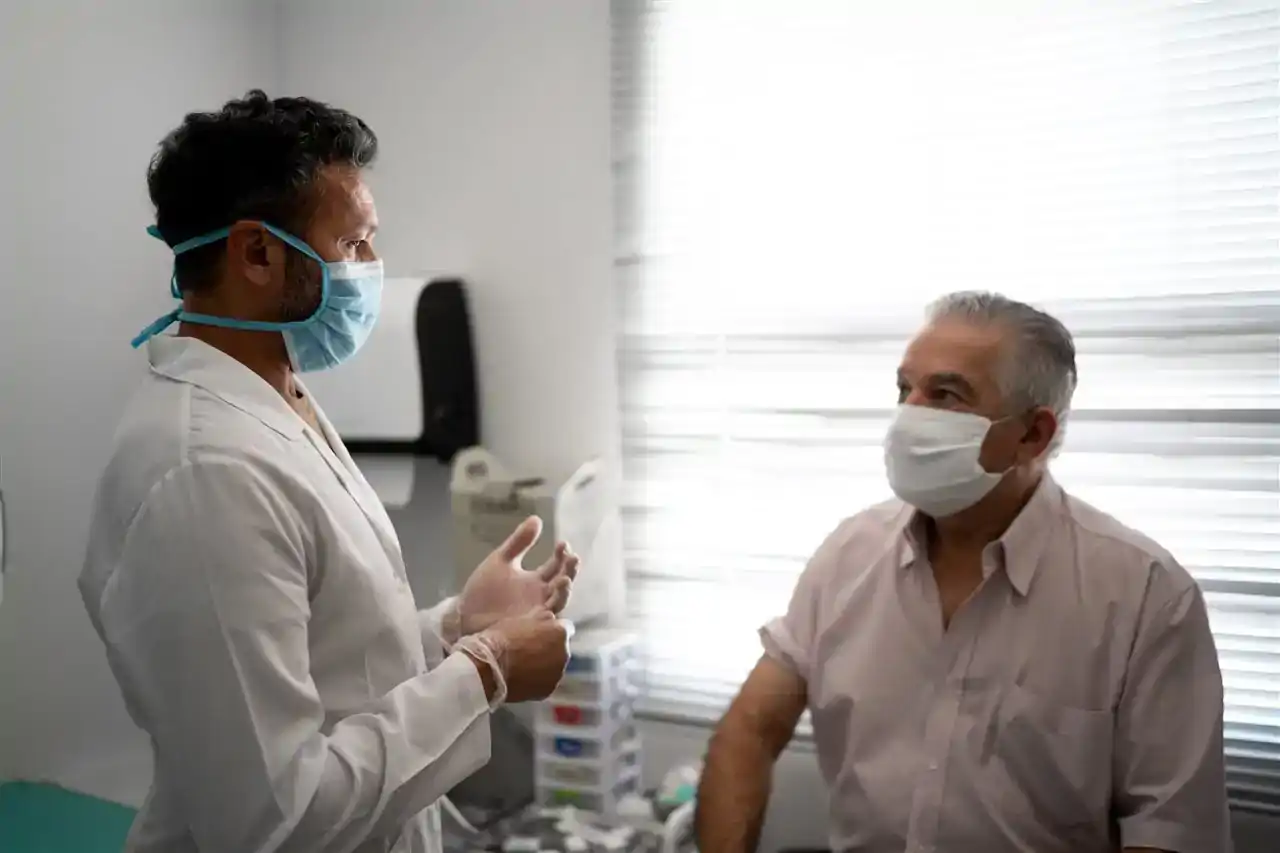Last Updated on October 8, 2023
When improving your health and wellness, it’s essential to take care of your eyes too. For African Americans, this is especially important because of increased risk factors for eye disease and vision loss.
According to the American Academy of Ophthalmology, glaucoma — a disease that damages the optic nerve and causes vision loss — is three times more likely to occur in African Americans.
The risks of glaucoma are magnified further when you consider that the disease strikes, on average, 10 years earlier and progresses faster among African Americans, according to the Glaucoma Research Foundation
The good news is that with early detection and treatments, including a wide range of eye drop medications, laser treatments and several types of incisional surgery, the majority of patients with glaucoma maintain their vision. By becoming aware of your risk factors and taking preventive steps, you can help protect your eyes.
1) Finding answers in your genes
While the risk factors for eye disease continue to be studied, the ophthalmology community believes genetics can play a role.
“Aside from the access to care challenges that confront members of minority populations, African Americans have a range of genetic predispositions that make them more susceptible to eye diseases such as glaucoma,” says Dr. Eydie Miller-Ellis, professor of clinical ophthalmology and director of the Glaucoma Service at the Scheie Eye Institute, Perelman School of Medicine at the University of Pennsylvania.
“This includes an increased risk of high blood pressure, diabetes and other serious medical conditions that can also contribute to poor eye health.”
2) Don’t dismiss a lack of symptoms
Since glaucoma often develops without symptoms and you can lose vision without noticing it, Miller-Ellis stresses that early action is vital for African Americans to help prevent glaucoma and other eye diseases.
“The increased risk of early onset glaucoma makes it critical for African Americans to take steps to protect their eye health at a young age,” says Miller-Ellis. “Many people are lulled into a sense of complacency when it comes to their vision because they believe they see fine. But a lot of asymptomatic disorders like glaucoma can be damaging your eyesight without you realizing it.”
3) Schedule an eye exam
Understanding that you are at greater risk for eye disease and vision loss is the starting point toward protecting your eyesight. Begin a routine of yearly dilated eye exams with an ophthalmologist so that vision problems can be detected early. The Glaucoma Research Foundation recommends African Americans get a comprehensive exam to check for glaucoma starting at age 35.
4) No vision plan? No worries
Don’t let the lack of a vision plan hold you back from scheduling a screening for glaucoma. Medical eye exams and treatments for eye diseases, including glaucoma, are typically covered by regular health insurance. Check with your healthcare provider for specifics on your level of coverage. In addition, EyeCare America offers medical eye exams with volunteer ophthalmologists across the U.S., often for free.
5) Know your family history
Some eye diseases, such as glaucoma, can be hereditary. And for African Americans, the risk of glaucoma is 20% higher if it’s already in your family.
“To prioritize healthy vision, it’s important to have a complete understanding of your family’s history of eye disease,” says Dr. Mildred M.G. Olivier, founding regional dean at the School of Medicine, Ponce Health Sciences University, St. Louis campus. “That’s why I encourage African American families to not only discuss their individual history of eye disease, but also ensure that everyone in the family goes for an annual eye exam.”
6) Empower yourself
Olivier also encourages people to be their own advocates in breaking down the health inequity barriers for minorities that may stand in the way of better eye health.
“It’s important to ask your primary care physician to refer you to an ophthalmologist for an annual medical eye exam,” says Olivier. “When you are at the eye doctor’s office, make sure you are getting all the information you need and understand all of your options concerning your eyesight and any problems that arise.
Olivier and Miller-Ellis are working to improve access to eye care among minority populations as leaders of the Rabb-Venable Excellence in Ophthalmology Program, which supports minority medical students, residents and fellows in ophthalmology. The Rabb-Venable program is part of the National Medical Association – Ophthalmology Section and supported by the National Institutes of Health, National Eye Institute.
The Glaucoma Research Foundation offers resources for African Americans to help build a plan for better eye health, including the guide “Understanding and Living with Glaucoma.” This free booklet, supported by Aerie Pharmaceuticals, is available at www.glaucoma.org/booklet.







